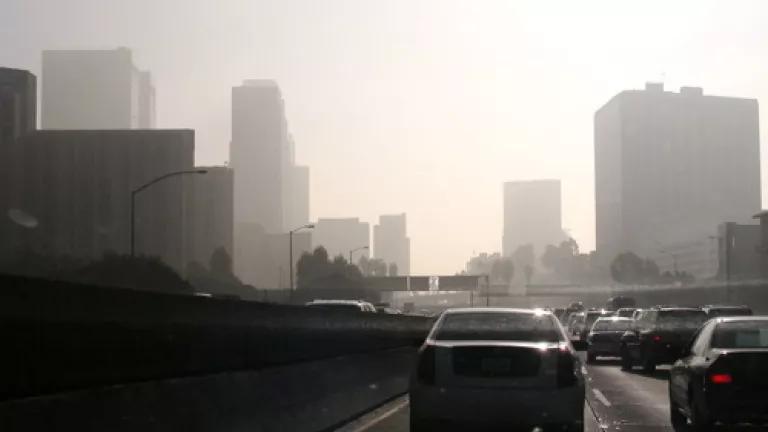
Like many Americans, I struggled to keep cool during the recent heat wave, but what really worried me was how my father would handle the spike in temperature. Medical experts say hot weather takes the heaviest toll on senior citizens, young children, and people with heart and lung illnesses. Diabetics, the obese, and people using common medications also face a greater risk when the heat rises.
In other words, tens of millions of people are vulnerable to extreme heat.
Now that climate change is making potent heat waves more commonplace, these numbers will only continue to rise. NRDC recently released a report concluding that an additional 33,000 heat-related deaths will occur by 2050 as a result of climate change.
The summer of 2012 has already delivered one record-breaking event after another, from wildfires to freak storms. This barrage of destruction has prompted more meteorologists and mainstream media outlets to finally make the connection between extreme weather and climate change.
But in the midst of all the intense coverage, a quieter, more personal story has been lost: the many ways extreme weather threatens our health.
At least 50 million Americans were under some form of heat advisory when the mercury spiked in communities from Brownsville to New York in the past few weeks. Hotter temperatures cause rashes, migraines, and heat stroke. But they also contribute to smog in the air, and June was the smoggiest month in the last five years. Breathing this pollution can inflame deep lung tissue. Repeated inflammation over time can permanently scar lung tissue, even in low concentrations.
The American Thoracic Society—the professional association of lung doctors—said climate change is especially dangerous for children and senior citizens because their lungs are more vulnerable to respiratory diseases caused by smog.
Smog pollution is also hazardous for people living with asthma, because it can trigger asthma attacks. The Center for Disease Control and Prevention reported that 24.6 million Americans suffer from asthma -- a 12 percent increase over the last decade. One in six African American children has asthma, while Latinos are three times more likely to die from asthma than other racial or ethnic groups.
In addition to heat and smog, the tens of thousands of Americans living near wildfires this summer have to cope with another hazard: smoke. The Center for Disease Control reports that smoke from wildfires can hurt eyes, irritate the respiratory system, and worsen chronic heart and lung diseases. People with asthma could have a harder time breathing and those suffering from heart conditions might experience chest pain and shortness of breath when they come into contact with the smoke.
All of these dangers add up—not only in the form of diminished health but also in terms of medical bills. In a recent study published in Health Affairs, a group of NRDC scientists and university economists looked at six climate-change-related events that happened in the United States in the last decade. These extreme events accounted for more than $14 billion in health-related care costs and more than 760,000 interactions with the health care system.
Too many lawmakers have remained idle while Americans pay for unchecked climate change with the health of our families and the well being of our communities. It’s time for leaders of both parties to start calling for reductions in carbon pollution and clean energy solutions.
The Obama administration has made good strides—including its clean car standards that will cut vehicle carbon pollution in half and its carbon limits on new power plants—but more needs to be done. Next up, it should set limits on how much carbon pollution existing power plants can release. And GOP lawmakers must stop blocking these efforts at every turn.
If our leaders don’t take bolder action soon, deadly heat waves and dirty air will become a steady presence in our lives.
